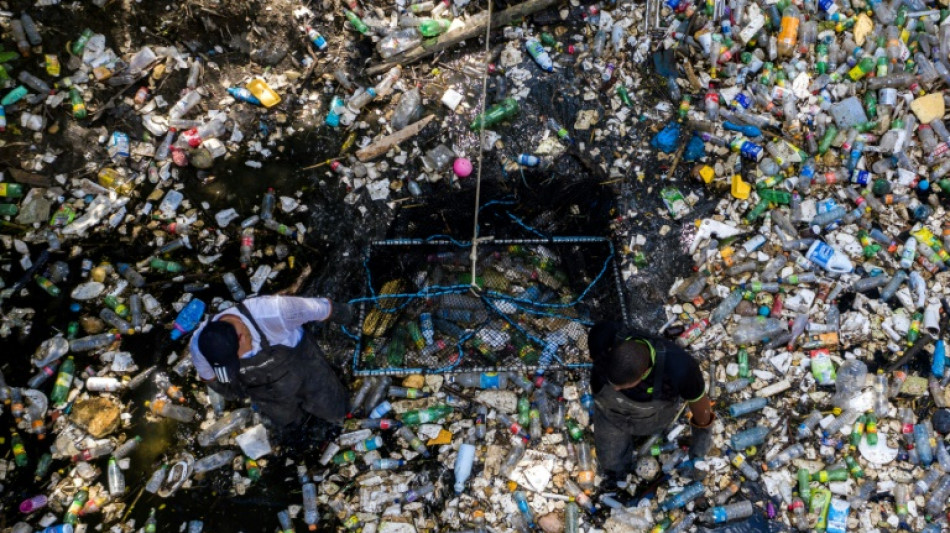
-
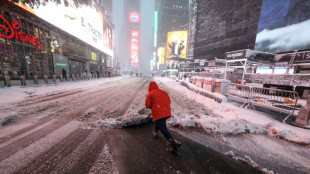 Snowstorm blankets US northeast as New York sees travel ban
Snowstorm blankets US northeast as New York sees travel ban
-
Healthcare crisis looms over Greenland's isolated villages

-
 Hodgkinson says breaking 800m record would put her among athletics' greatest
Hodgkinson says breaking 800m record would put her among athletics' greatest
-
Two Russian security personnel were on board France-seized tanker: sources
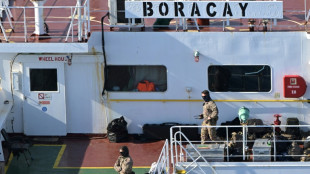
-
 EU puts US trade deal on ice after Supreme Court ruling
EU puts US trade deal on ice after Supreme Court ruling
-
Hetmyer blasts 85 as West Indies pile up 254-6 against Zimbabwe

-
 Canada PM heads to Asia seeking new trade partners as US ties fray
Canada PM heads to Asia seeking new trade partners as US ties fray
-
South Africa accepts Trump's new US ambassador

-
 Iraq's Maliki defends PM candidacy, seeks to reassure US
Iraq's Maliki defends PM candidacy, seeks to reassure US
-
UEFA suspend Benfica's Prestianni after alleged racist abuse

-
 Jetten sworn in as youngest-ever Dutch PM
Jetten sworn in as youngest-ever Dutch PM
-
Italy's Enel to invest 20bn euros in renewables by 2028
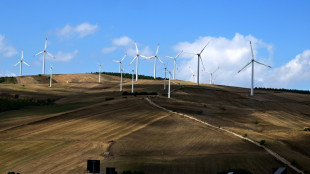
-
 BBC apologises for 'involuntary' Tourette's racial slur during BAFTA awards
BBC apologises for 'involuntary' Tourette's racial slur during BAFTA awards
-
Kristen Bell returns to host glitzy Actor Awards in Hollywood

-
 Iran says would respond 'ferociously' to any US attack
Iran says would respond 'ferociously' to any US attack
-
Venezuelan foreign minister demands 'immediate release' of Maduro
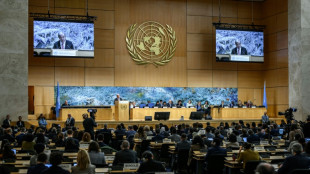
-
 Dane Vingegaard to start season at Paris-Nice in March
Dane Vingegaard to start season at Paris-Nice in March
-
Australia PM backs removing UK's Andrew from line of succession
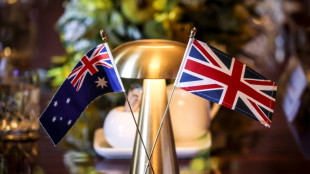
-
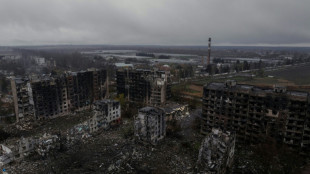 Where do Ukraine and Russia stand after four years of war?
Where do Ukraine and Russia stand after four years of war?
-
Police investigating racist abuse of Premier League quartet

-
 Fiji to start Nations Championship at 'home' to Wales in Cardiff
Fiji to start Nations Championship at 'home' to Wales in Cardiff
-
EU lawmakers to put US trade deal on hold after Supreme Court ruling

-
 Rubio to attend Caribbean summit as US presses Venezuela, Cuba
Rubio to attend Caribbean summit as US presses Venezuela, Cuba
-
'Ugly' England aim to spin their way to T20 World Cup semi-finals

-
 Nigeria paid Boko Haram ransom for kidnapped pupils: intel sources
Nigeria paid Boko Haram ransom for kidnapped pupils: intel sources
-
Tudor says Tottenham can still beat the drop despite Arsenal loss

-
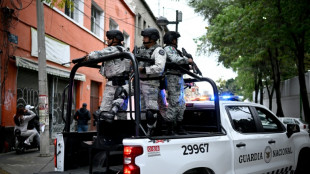 Violence sweeps Mexico after most-wanted drug cartel leader killed
Violence sweeps Mexico after most-wanted drug cartel leader killed
-
France giant Meafou capable of being 'world's best' lock

-
 Stocks diverge, dollar down over Trump tariffs uncertainty
Stocks diverge, dollar down over Trump tariffs uncertainty
-
World champions South Africa announce eight home Tests for 2026/27

-
 Liverpool boss Slot encouraged by Mac Allister's return to form
Liverpool boss Slot encouraged by Mac Allister's return to form
-
India replaces British architect statue with independence hero
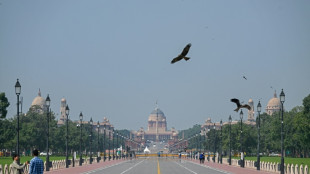
-
 Pakistan warn England's flaky batting to expect a trial by spin
Pakistan warn England's flaky batting to expect a trial by spin
-
Philippines' Duterte authorised murders, ICC told as hearings open

-
 Iran says would respond 'ferociously' to any US attack, even limited strikes
Iran says would respond 'ferociously' to any US attack, even limited strikes
-
New Dutch government sworn in under centrist Jetten

-
 What the future holds for the CJNG cartel after leader killed
What the future holds for the CJNG cartel after leader killed
-
ICC kicks off pre-trial hearing over Philippines' Duterte

-
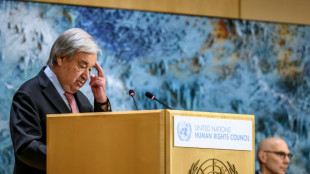 UN chief decries global rise of 'rule of force'
UN chief decries global rise of 'rule of force'
-
Nemesio Oseguera, the brutal Mexican drug lord known as 'El Mencho'
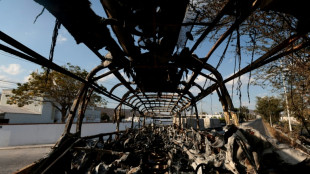
-
 Senegal's Sahad, radiant champion of 'musical pan-Africanism'
Senegal's Sahad, radiant champion of 'musical pan-Africanism'
-
New York orders citywide travel ban as major storm hits US
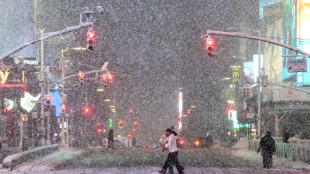
-
 'Considered a traitor': Life of an anti-war Ukrainian in Russia
'Considered a traitor': Life of an anti-war Ukrainian in Russia
-
South Korea and Brazil sign deals on K-beauty, trade

-
 Zimbabwe farmers seek US help over long-promised payouts
Zimbabwe farmers seek US help over long-promised payouts
-
Hong Kong appeals court upholds jailing of 12 democracy campaigners

-
 India battle for World Cup survival after 'messing up on grand scale'
India battle for World Cup survival after 'messing up on grand scale'
-
'I will go': Bengalis in Pakistan hope for family reunions
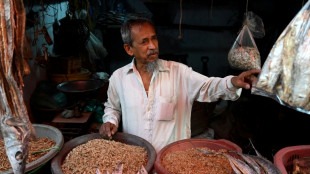
-
 North Korea touts nuclear advances as Kim re-chosen to lead ruling party
North Korea touts nuclear advances as Kim re-chosen to lead ruling party
-
South Korea protests 'Victory' banner hung from Russian embassy


Plastic, chemical pollution beyond planet's safe limit: study
The torrent of man-made chemical and plastic waste worldwide has massively exceeded limits safe for humanity or the planet, and production caps are urgently needed, scientists have concluded for the first time.
There are an estimated 350,000 different manufactured chemicals on the market and large volumes of them end up in the environment.
"The impacts that we're starting to see today are large enough to be impacting crucial functions of planet Earth and its systems", Bethanie Carney Almroth, co-author of a new study told AFP in an interview.
The study, by the Stockholm Resilience Centre, comes ahead of a UN meeting in Nairobi at the end of the month on tackling plastic pollution "from source to sea", UN Environment Programme head Inger Andersen said on Monday.
Chemicals and plastics are affecting biodiversity, piling additional stress on already stressed ecosystems.
Pesticides kill living organisms indiscriminately and plastics are ingested by living things.
"Some chemicals are interfering with hormone systems, disrupting growth, metabolism and reproduction in wildlife," Carney Almroth said.
While greater efforts are needed to prevent these substances being released into the environment, scientists are now pushing for more drastic solutions, such as production caps.
- 'Enough is enough' -
Recycling has so far yielded only mediocre results.
Less than 10 percent of the world's plastic is currently recycled, even as production has doubled to 367 million tonnes since 2000.
Today, the total weight of plastic on Earth is now four times the biomass of all living animals, according to recent studies.
"What we're trying to say is that maybe we have to say, 'Enough is enough'. Maybe we can't tolerate more," the Sweden-based researcher said.
"Maybe we have to put a cap on production. Maybe we need to say, 'We can't produce more than this'."
For several years, the Stockholm Resilience Centre has been conducting studies on "planetary boundaries" in nine areas that influence Earth's stability, such as greenhouse gas emissions, freshwater usage and the ozone layer.
The aim is to determine if mankind is in a "safe operating space" or if the limits are being exceeded and threaten the future of the planet.
The impact of so-called "novel entities" -- or man-made chemical products such as plastics, antibiotics, pesticides, and non-natural metals -- has until now been a big question.
And the answer is complex.
"We are only beginning to understand the large-scale, long-term effects of these exposures," Carney Almroth said.
Not only are there thousands of these products but the data on the risks they pose is often non-existent or classified as corporate secrets.
Additionally, the chemicals are relatively recent, most of them developed in the past 70 years.
"And we're talking about 350,000 different substances,' Carney Almroth said.
"We don't have knowledge on the vast majority of those, in terms of how much are produced or their stability. Or their fate in the environment or their toxicity."
"We know what some of them are. For most of them, we have no clue."
Even the most comprehensive databases, such as the European Union's REACH inventory, only cover 150,000 products, and only a third of those have been the subject of detailed toxicity studies.
- 'No silver bullet' -
As a result, the team of researchers focused on what is known, and this partial information was enough to draw an alarming conclusion.
"Looking at changes over time and trends in production volumes lost in the environment ... and connecting that to the little bit we do know about impacts, we could say that every arrow is pointing in the wrong direction", Carney Almroth said.
There is still "time to revert this situation" but it will take "urgent and ambitious actions ... at an international level", she added.
Furthermore, "there's no silver bullet".
"No one answer is going to solve all of this, because a lot of these chemicals and materials are things that we use and that are necessary for our lives as of right now," she said.
Regardless of how much effort is made during the production or waste management phase, production volumes need to come down, she stressed.
"This seems very obvious to say but it's only recently accepted as truth: The more you produce, the more you release".
U.Shaheen--SF-PST



